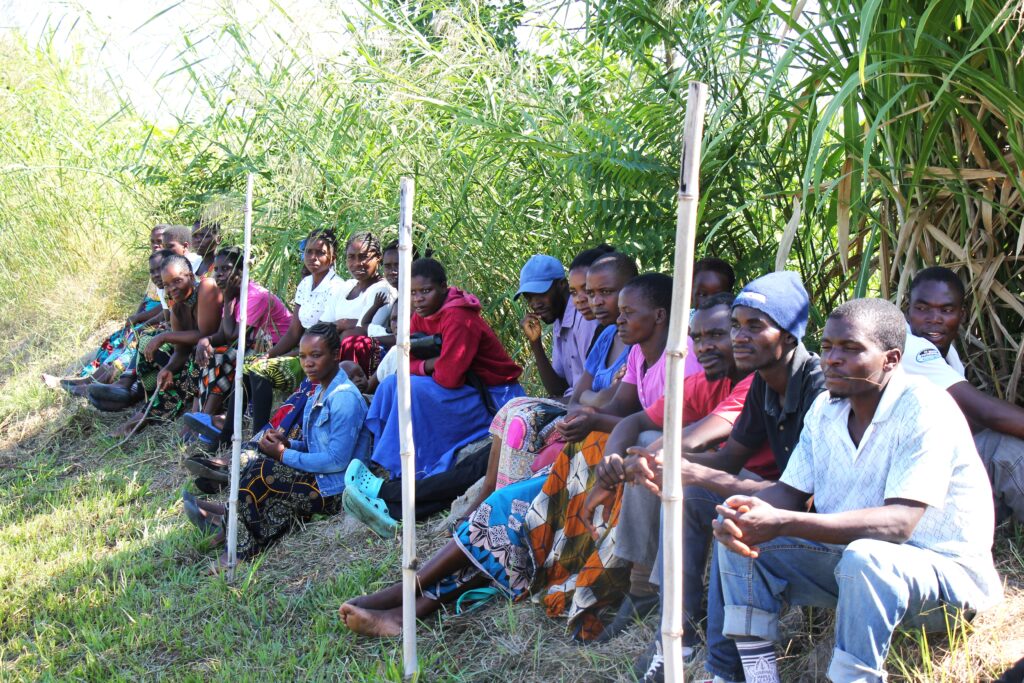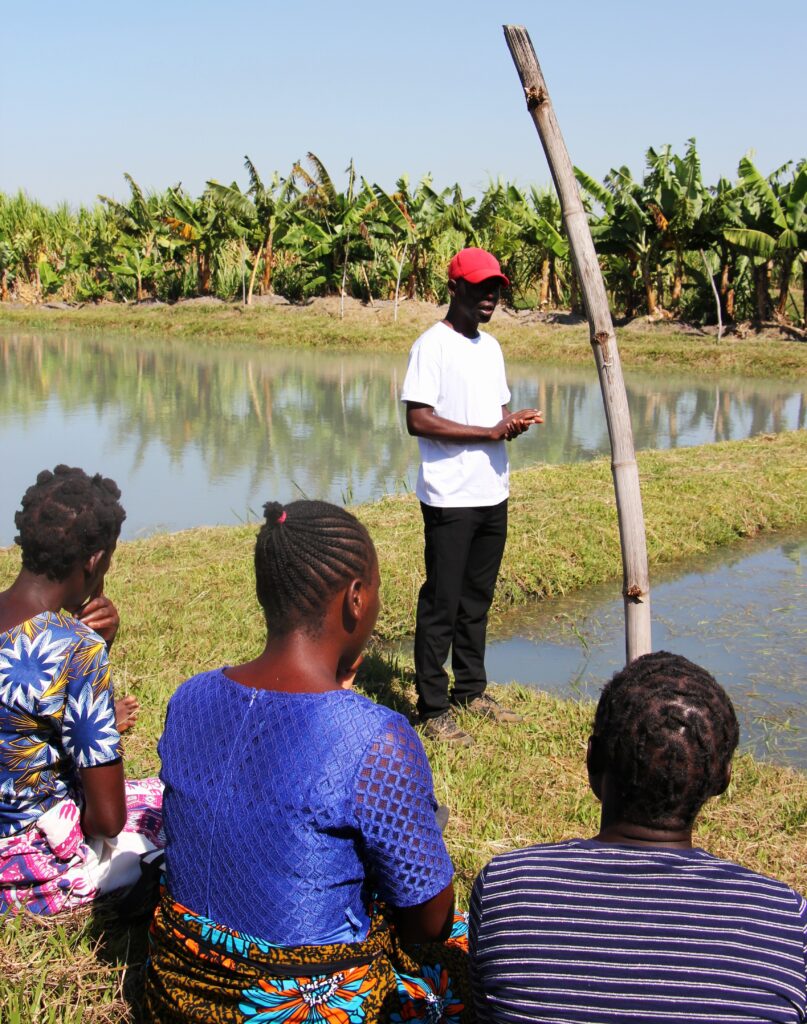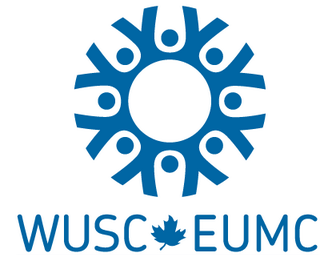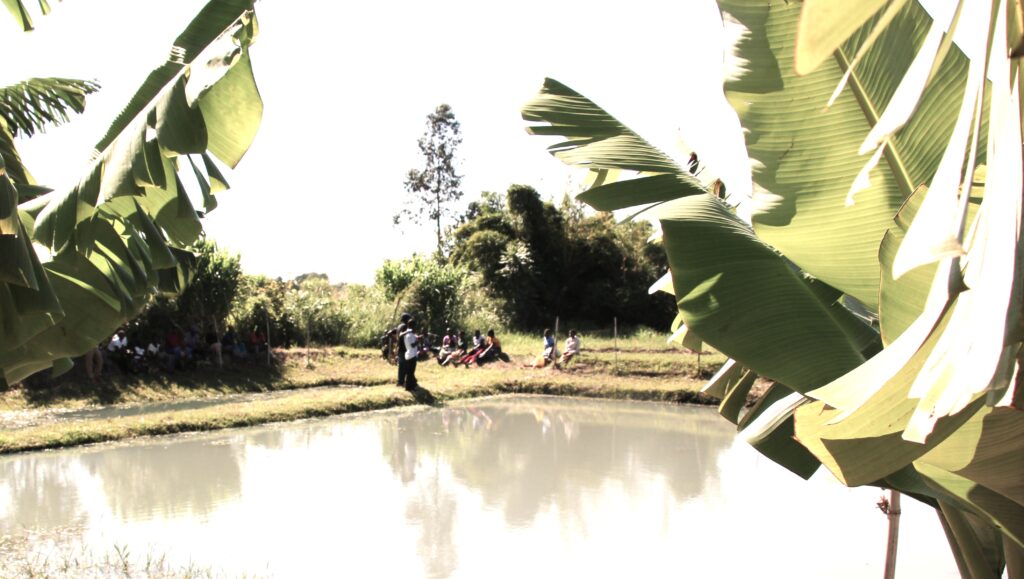Hephzibah Hermes, project officer for Kwajo Foundation, has great hopes for the participants involved in the Smart-Aqua project in M’bwatalika. In 2018, Kawjo Foundation purchased a small farm in M’bwatalika as a demonstration and training site for integrated aquaculture and agriculture farming. Since then, Kawjo has delivered aquaculture training to residents on pond construction and fish farming techniques.
In November 2024, Kawjo was granted funding from the World University Service Canada (WUSC) Partner Innovation Fund to train 50 youth participants from three nearby villages on climate-smart integrated aquaculture and agriculture land use, the development and construction of two greenhouses, business development, waste management, group dynamics, and gender-training.
To date, participants have been selected and have received group dynamics training. They eagerly await the next phase of the project, which includes greenhouse construction and further training. Hephzibah shares this sentiment. “The participants are engaged and excited to learn. Since receiving the group dynamics training, they have continued to meet monthly to fundraise, share information, and support one another. They are ready to start building and farming!”

Hephzibah tells the story of Steven Kalomo, a resident of M’bwatalika, who was trained in pond construction by Kawjo Foundation a few years ago. He became the initial chair of the farming collective in his community and continues to be a member. When he heard about the construction of a greenhouse, he was intrigued and decided to try to build one for his onion crop nursery, which is perpetually at risk of being flooded by heavy rains during the rainy season. He gathered poles, twine, and plastic bags, and erected a make-shift greenhouse over his onions. His onions were spared this past rainy season and he proudly offered Hephzibah new onion seedlings for the Kawjo farm.
Steven is just one of many eager participants to learn and apply new technologies and techniques. Participants have witnessed how farmers’ lives improved after being trained and supported by Kawjo Foundation. Fish farming is a developing sector in Malawi, and farmers who have traditionally farmed plant crops are keen to integrate aquaculture into their agricultural practices. They understand the value of diversifying crops, expanding markets, and developing additional revenue sources.

Hephzibah has his own expectations for the Smart-Aqua project. He looks forward to training, mentoring, and supporting such a committed and engaged group. Once trained, Hephzibah hopes that the farmers will have the knowledge and skills to venture into aquaculture. Hephzibah is committed to ensuring that the training is relevant, effective, and accessible. “What is important in delivering training is creating a safe and welcoming environment, particularly to women and youth. Moreover, the content must reflect current best practices in aquaculture, especially as it relates to our changing climate. Our teaching is also paired with practice. Applied learning is critical to ensure that once the training is complete, farmers have the confidence to farm. Of course, our Kawjo team maintains strong connections with all participants to advise and coach long after the training.”
When asked if he has anything else to add, Hephzibah breaks out in a wide smile. “What I want most for the farmers is that they flourish. I want what they want – greater income for their families so that they have more opportunities, stability, security, and pride. That’s the ultimate goal.”



